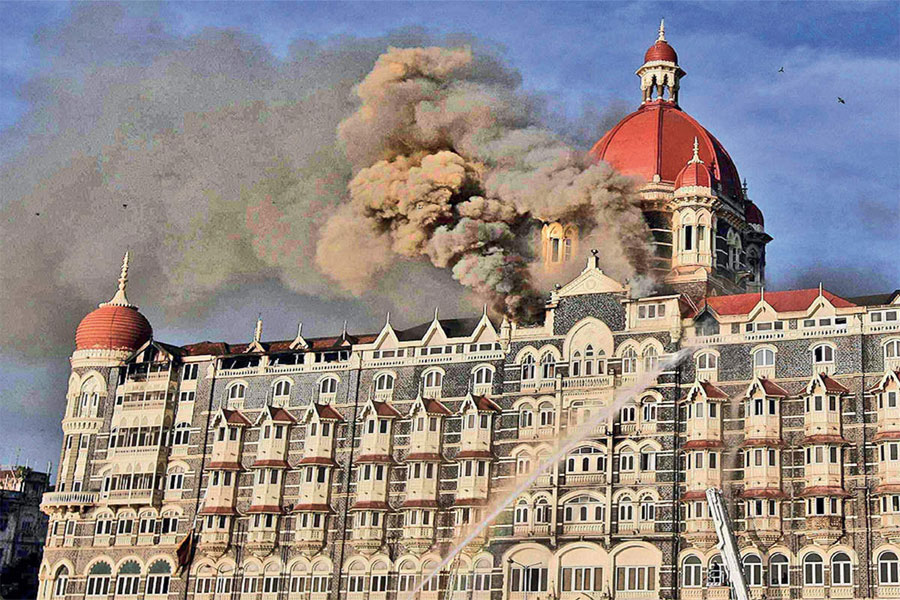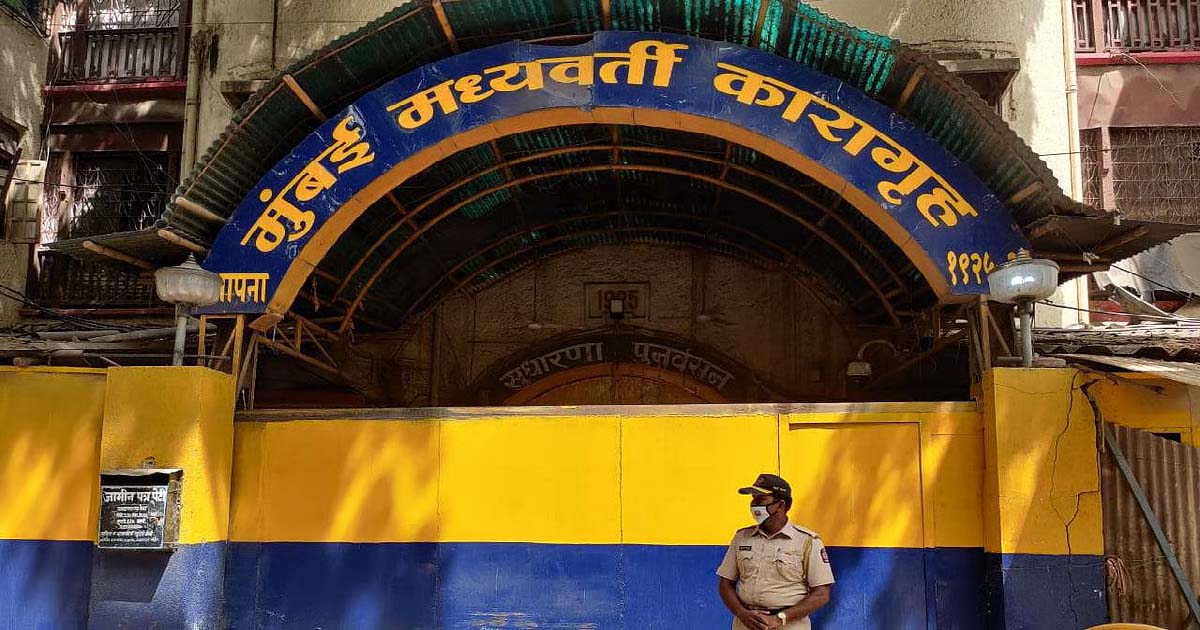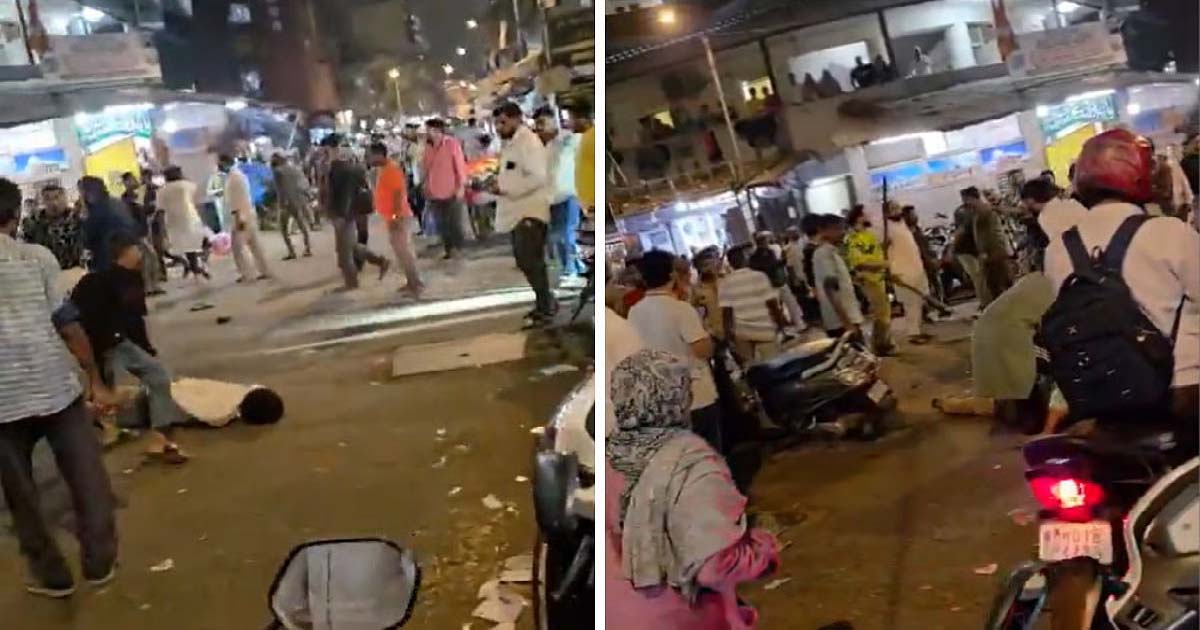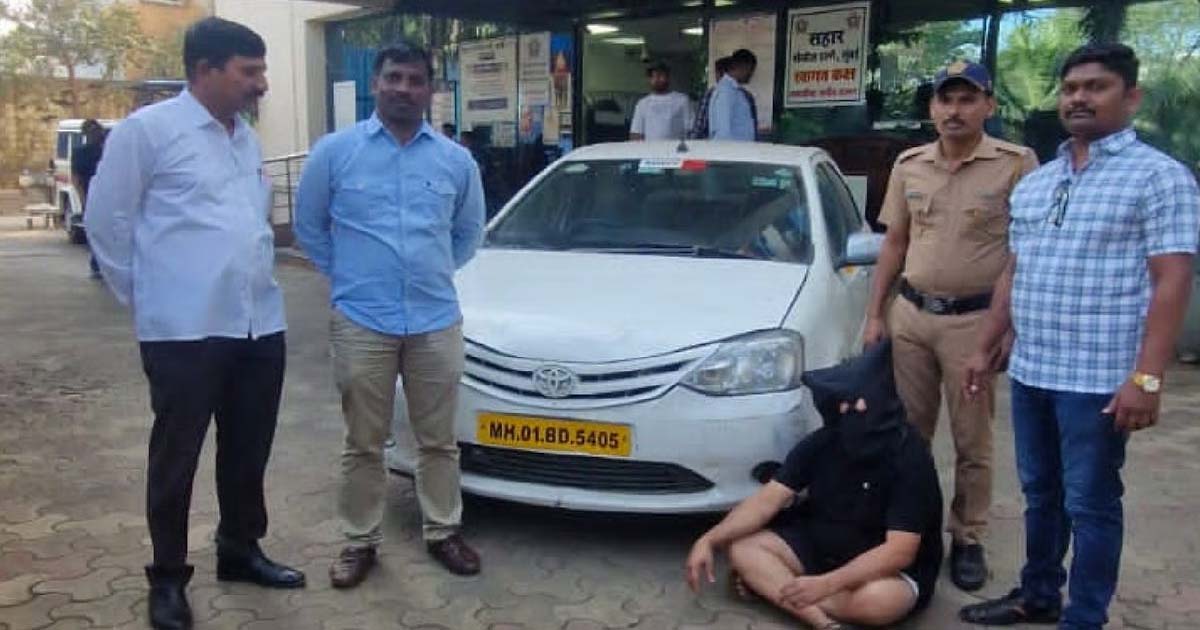Crime
Why India must step up its global campaign to nail Pak-sponsored terror

Nov 30: The 14th anniversary of the gruesome Mumbai terror attacks has gone by without its perpetrators being brought to justice. Those massacred belonged to many nationalities, including 6 Americans, yet Pakistan has escaped international pressure to try those involved in planning and committing this heinous crime. A Pakistani, Ajmal Kasab, was caught, tried and hanged, providing proof of Pakistani complicity. India was counselled, as usual, to show restraint and not retaliate by the US, the EU and Russia too, because of concerns of a conflict between two nuclear powers.
It is ironical that the nuclear overhang is not a matter of concern today when a proxy war in Ukraine is being openly conducted by the world’s pre-eminent nuclear war, the US, against Russia, a peer nuclear power, seemingly unmindful of it potentially escalating to a nuclear level. Ukraine’s leader has asked for a pre-emptive nuclear strike against Russia, without causing a public storm in the West. There is loose talk in the West about Russia using tactical nuclear weapons in Ukraine as a viable option. The nuclear plant at Zaporizhzhia is being shelled, raising the possibility of nuclear contamination, but Ukraine is being sheltered from any responsibility by the West as not doing so would compel a change in the present narrative that paints Putin as the unqualified villain and Zelensky as the unvarnished hero.
Under the cloak of nuclear-related concerns the West has sought to dissuade India from reacting strongly to Pakistan’s terrorist attacks and give a protective cover to that country as a result of a historical bias in its favour and continuing geopolitical interests there. The West has always pushed for dialogue to resolve all outstanding issues between the two countries. For long, the West, without saying so too openly, has viewed Pakistan’s use of terrorism as a consequence of the unresolved Kashmir issue, implying that it had a cause. This was a way to obfuscate the terrorism issue, give it some “legitimacy” by linking it to the Kashmir issue, on which the West still equivocates.
This is apparent from the statements by German Foreign Minister Baerbok in June and October this year in the company of her Pakistani counterpart to the effect that the UN must ensure human rights in Kashmir and that Germany had a role and responsibility in addressing the Kashmir issue with the involvement of the UN. More recently, the UK Minister of State in the Foreign Office in a debate initiated by a Pakistani origin peer in the House of Lords said that the Kashmir issue should be resolved between India and Pakistan “taking into account the wishes of the Kashmiri people.” This are code words for self-determination, implying that the issue of sovereignty over Kashmir is still open. Aware that Pakistan Occupied Kashmir has been the staging ground for Pakistani terrorism against India, the US ambassador to Pakistan recently visited what he called “Azad Kashmir”.
In the case of the US, its war on terror in our region has been full of contradictions and compromises. After the 9/11 terrorist attacks on its soil the US attacked Afghanistan and ousted the Taliban government. It acknowledged but overlooked the safe havens and support Pakistan gave to the Taliban in its bid to take over power in Afghanistan with the liberal use of the arm of terrorism. Eventually, with Pakistan’s assistance the Americans entered into negotiations with the very Taliban that they had ousted years earlier, unchanged in their Islamist ideology and practices. The US, despite its global combat against Al Qaida, preferred to overlook the fact that Pakistan had sheltered Osama bin Laden for several years. The US had called the Haqqani group as a veritable arm of the ISI and now that group is in charge of the security in Kabul. The decision by the US to grant $450 million to Pakistan to upgrade its F 16s for counter-terrorism purposes – which our External Affairs Minister has dismissed as a valid explanation- indicates the complexity of the challenge India faces from Pakistan’s terrorist affiliations.
The Indian government in power when 26/11 occurred not only shied away from imposing a deserving cost on Pakistan, it resumed the comprehensive dialogue with it after a few months, showing weakness in signaling that it saw no choice but to engage Pakistan. This emboldened Pakistan to conduct more terrorist attacks against India in the following years, which continued till the present government, which initially also explored the possibility of reaching some understanding with Pakistan on abjuring terrorism as a weapon against India, but then conducted surgical strikes inside Pok after the Uri attack and after Pulwama inside Pakistan as a warning that India would henceforth retaliate forcefully against any terrorist attacks.
India has since then pursued a pro-active policy in raising its concerns about terrorism bilaterally with partners and in all multilateral forums, with some gains as the phrase “cross border terrorism” has figured in our joint statements with many countries, and LeT, JeM, HuM and other jihadi organisations have been identified as terrorist organisations. Some have been included in the UN list of terrorists, but some key figures have not been because of China’s obstructionism. China, which never condemned the 2008 Mumbai attacks, protects Pakistan on the issue of terrorism by lauding its combat against it and incurring costs as a result.
Through the Financial Action Task Force (FATF), which sets standards and seeks to promote effective implementation of legal, regulatory and operational measures for combating money laundering, terrorist financing etc, Pakistan has been subjected to pressure by its inclusion in the grey list of countries that do not adequately comply with these standards and measures. In its precarious financial situation when it needs IMF financing etc, it has been compelled to satisfy the FATF on several parameters for meriting removal from the grey list. It has jailed Hafiz Saeed and some others for terror financing but not for 26/11, which means that he and others have escaped trial for master minding the Mumbai attacks, a trial that would have revealed the identity of all those in the Pakistan establishment involved in them. Pakistan has thus escaped real accountability.
In October, Pakistan was removed form the grey list. India reminded the global community that it was in its interest that Pakistan continued to take credible, verifiable, irreversible and sustained action against terrorism and terror financing emanating from territories under its control. Pakistan has been on the FATF’s grey list twice before and was removed despite maintaining its terrorist infrastructure. With the radicalisation that has occurred in Pakistan, visible in the street power of the Islamist groups that the political establishment has not been able to handle without compromises, and which is now being mobilised by Imran Khan, it would be a leap of faith to believe that the extremist groups well integrated with the society at large in Pakistan would give up their vocation for jihad and not raise funds for that purpose.
With India still serving its term on it, the UN Security Council held a Special Meeting of its Counter Terrorism Committee in India on October 28/29. India did well to expose the Committee to the 26/11 attacks in a programme in Mumbai, including exchanges with those that lived through that horror. It reminded the Committee members of the need to bring to justice the perpetrators who remain protected and unpunished (a reference to Pakistan), as well as the inability of the UN to act in some cases because of political considerations ( a reference to China). India conveyed a message on issues that still need addressing: terrorism still gets the necessary financial resources to thrive, UN efforts need to be coordinated with the FATF and the Egmont Group, the Security Council sanctions regime should function transparently and effectively on the listing of terrorist groups etc.
India rightly drew attention to the misuse of the emerging technologies by non-state actors and “lone wolf attackers” for terrorism purposes. These have thrown up new challenges for the governments and regulatory bodies. The internet and social media platforms have become potent instruments in the toolkit of terrorist groups along with the use of unmanned aerial systems against strategic infrastructure and commercial assets. In Punjab we have seen Pakistan using drones to drop weapons and drugs across the border. The Delhi Declaration of October 29 expresses these concerns in the context of the need to counter the use of new and emerging technologies for terrorist purposes.
The cause of justice in the case of 26/11 was not served by India itself by resuming our dialogue with Pakistan despite those abominable attacks, the conspiracy theories that sections of our political class in India built around what happened, the equivocation of the West on taking Pakistan to task for its own geopolitical interests and the fact that India itself seemed reconciled to what it suffered by re-engaging Pakistan, and China’s double dealing on terrorism issues in support of Pakistan.
India is doing well, however, to keep drawing the attention of the international community to the threat of terrorism, even as Pakistan seems off the hook on the issue with its changed ties with the US, outreach to it by Russia and support of China, and with the “war on terror” now off the US agenda. India remains vulnerable with Pakistan and a Talibanised Afghanistan next door, not to mention the emergence of the Islamic State elements there. By maintaining the focus on terrorism India is indirectly maintaining pressure on Pakistan to contain its terrorist proclivities.
(Kanwal Sibal is India’s former Foreign Secretary and Ambassador to Russia. Views expressed are personal and exclusive to India Narrative)
Crime
Mumbai Crime: Undertrial Prisoner Assaults Policeman Inside Arthur Road Jail, Case Registered

Mumbai: A shocking incident has come to light from Mumbai’s Arthur Road Jail, where an undertrial prisoner allegedly assaulted a police constable on duty.
The accused, Lokendra Uday Singh Rawat (35), is reported to have headbutted Police Constable Hani Baburao Wagh (30), causing injuries to his nose, and also abused and pushed other on-duty police personnel. A case has been registered in this connection at the N. M. Joshi Marg police station.
According to the FIR, the complainant, Police Constable Wagh, is attached to Armed Police Division–2, Tardeo. On January 27, he reported for his 24-hour day-duty shift at Arthur Road Jail at around 8 am and was assigned security duty at the main entrance of the prison.
At around 9 pm, Armed Police Constables Suresh Sandu Mali and Sachin Chavan brought undertrial Lokendra Rawat back to the jail after producing him before the Dindoshi Court. Rawat allegedly appeared agitated and, after entering the jail premises, sat near the gate and began verbally abusing the police personnel on duty.
Constable Wagh asked Rawat to calm down and refrain from using abusive language. However, Rawat allegedly became more aggressive and continued shouting abuses. When Wagh approached him again to pacify the situation, Rawat suddenly headbutted him on the nose with force.
As a result, Constable Wagh sustained injuries and started bleeding. Fellow constables Sachin Chavan and Suresh Mali immediately intervened, restrained the accused, and informed the on-duty prison authorities about the incident. Rawat was subsequently sent for medical examination to Sir J.J. Hospital.
After receiving medical treatment, the injured constable lodged a formal complaint on January 28 at the N. M. Joshi Marg police station. Based on the complaint, police have registered a case against the undertrial under relevant sections of the Bharatiya Nyaya Sanhita (BNS). Further investigation is ongoing.
Crime
Mumbai Crime: One Critical Among 5 Injured After Violent Group Clash Breaks Out In Nagpada, 13 Detained

Mumbai: A violent confrontation between two groups erupted in South Mumbai’s Nagpada area late Thursday night, leaving several people injured and sparking a massive police response. Authorities have confirmed that one individual remains in critical condition following the brawl, which has once again put the spotlight on the volatile security situation in the densely populated area.
According to the Mumbai Police, the altercation broke out between two local groups over a financial dispute that escalated rapidly. What reportedly began as a verbal spat soon turned into a physical battle.
A video of the clash has surfaced on the internet shows the exact moments of the violent situation. Two men can be seen lying on the road, probably unconsious after participating in the brawl. Five to six other men can be seen weilding rods and sticks engaged in a fight, in full public view.
The violence resulted in five to six individuals sustaining serious injuries. They were rushed to a nearby hospital for emergency treatment. Medical officials confirmed this morning that while most are stable, one victim is currently in critical condition and is battling for life in the intensive care unit.
The Nagpada Police arrived at the scene shortly after the violence peaked to disperse the crowd and restore order. Heavy police deployment remained in the area throughout the night to prevent any retaliatory attacks or further communal or localised tension.
In a swift crackdown following the incident, the Mumbai Police have detained 13 individuals suspected of involvement in the clash. The police have officially registered a case against the accused parties under various sections of the Indian Penal Code (IPC), including Section 109 and Section 191.
As of Friday morning, the situation in Nagpada is reported to be under control, though an uneasy calm prevails. Security has been beefed up at key intersections, and patrolling has been intensified.
Crime
Mumbai Crime: 50-Year-Old Taxi Driver Arrested For Cheating American National Of ₹18,000 For 400-Metre Ride Near Airport

Mumbai: The Sahar Police on January 28 arrested a taxi driver for allegedly defrauding an American national of Rs 18,000 for a taxi ride of just 400 metres.
The accused has been identified as Yashraj Yadav alias Papuu (50). The police have seized the vehicle, and the accused is currently in judicial custody. Two accused were involved in the crime. One is Yadav, while his associate, Taufiq Shaikh, is absconding.
The case came to light after a social media post by the American national, Argentina Ariano, went viral. In her post, she alleged that she was scammed by a taxi driver shortly after arriving in Mumbai.
According to the police, the victim had arrived in India for work. The incident took place on January 12 at around midnight after she landed at the Mumbai International Airport.
She alleged that the taxi driver charged her Rs 18,000 for a trip to a hotel located barely 400 metres away. Yadav allegedly took the woman on a 20-minute drive in Andheri (East), returned to the same locality, dropped her at the hotel and collected the fare.
Nearly 15 days later, on January 26, she posted about the incident on social media. In her post, she wrote: “Landed in Mumbai recently, took a taxi to the Hilton Hotel. The driver and another man first took us to an unknown location, charged us $200 (Rs 18,000), and then dropped us at the hotel, which was only 400 metres away. Taxi No: MH 01 BD 5405.” She tagged Mumbai Police and the Traffic Police and used the hashtag #scam.
Responding to the post, Mumbai Police replied, “We have followed you. Please share your contact details in DM.” Following this, the Sahar Police initiated an inquiry.
During the investigation, police found that there are three Hilton hotels near the airport and identified the exact hotel where the American national had stayed. However, within 12 to 13 hours of the incident, she had checked out of the hotel and left the country. She checked out the next day and went to Pune, from where, after completing her tour, she returned to the US.
Manoj Chalake, Senior Police Inspector of Sahar Police Station, said, “We are trying to get the victim’s statement via video call or email. She did not inform the hotel staff about the incident. We have repeatedly informed people to communicate with the hotel or the local authority if a tourist suspects that a cabbie is fleecing them.”
The police contacted her and requested her to file a formal complaint. Although she responded with “Okay”, she did not lodge any complaint.
The Sahar Police then registered a suo motu case on January 28 against an unknown taxi driver under Sections 318(4) (cheating) and 3(5) of the Bharatiya Nyaya Sanhita (BNS) and launched a search operation.
Using the taxi number mentioned in the post, police traced the accused, Yadav, who resides in Sahar Village and is a permit taxi driver. The vehicle, a white Toyota Etios, has been seized. The vehicle is registered under the S.M.S. Tours and Travels company. Police said they would send his details to the Regional Transport Office (RTO) for cancellation of his licence.
A police officer said two persons were involved in the crime — Yadav and his associate, Taufiq Shaikh, around 50 years old. Yadav allegedly negotiated the fare with the foreign national and then called Shaikh, who arrived with the car. Both allegedly cheated the tourist.
Shaikh later took the money from Yadav and fled to Uttar Pradesh. Police records show that several cheating cases have been registered against Shaikh at various police stations. Yadav, however, has no prior criminal record.
Manoj Chalake added, “We have seized the car. The cash could not be recovered as the other accused took the money and fled. We are searching for him. We will soon call the company owner for a statement.”
He further said that the police do not have much information about the foreign national, as she has not provided details about the purpose of her visit or other relevant information.
The Metropolitan Magistrate Court initially remanded Yadav to one day of police custody and later sent him to judicial custody.
-

 Crime3 years ago
Crime3 years agoClass 10 student jumps to death in Jaipur
-

 Maharashtra1 year ago
Maharashtra1 year agoMumbai Local Train Update: Central Railway’s New Timetable Comes Into Effect; Check Full List Of Revised Timings & Stations
-

 Maharashtra1 year ago
Maharashtra1 year agoMumbai To Go Toll-Free Tonight! Maharashtra Govt Announces Complete Toll Waiver For Light Motor Vehicles At All 5 Entry Points Of City
-

 Maharashtra1 year ago
Maharashtra1 year agoFalse photo of Imtiaz Jaleel’s rally, exposing the fooling conspiracy
-

 National News1 year ago
National News1 year agoMinistry of Railways rolls out Special Drive 4.0 with focus on digitisation, cleanliness, inclusiveness and grievance redressal
-

 Maharashtra1 year ago
Maharashtra1 year agoMaharashtra Elections 2024: Mumbai Metro & BEST Services Extended Till Midnight On Voting Day
-

 National News1 year ago
National News1 year agoJ&K: 4 Jawans Killed, 28 Injured After Bus Carrying BSF Personnel For Poll Duty Falls Into Gorge In Budgam; Terrifying Visuals Surface
-

 Crime1 year ago
Crime1 year agoBaba Siddique Murder: Mumbai Police Unable To Get Lawrence Bishnoi Custody Due To Home Ministry Order, Says Report












